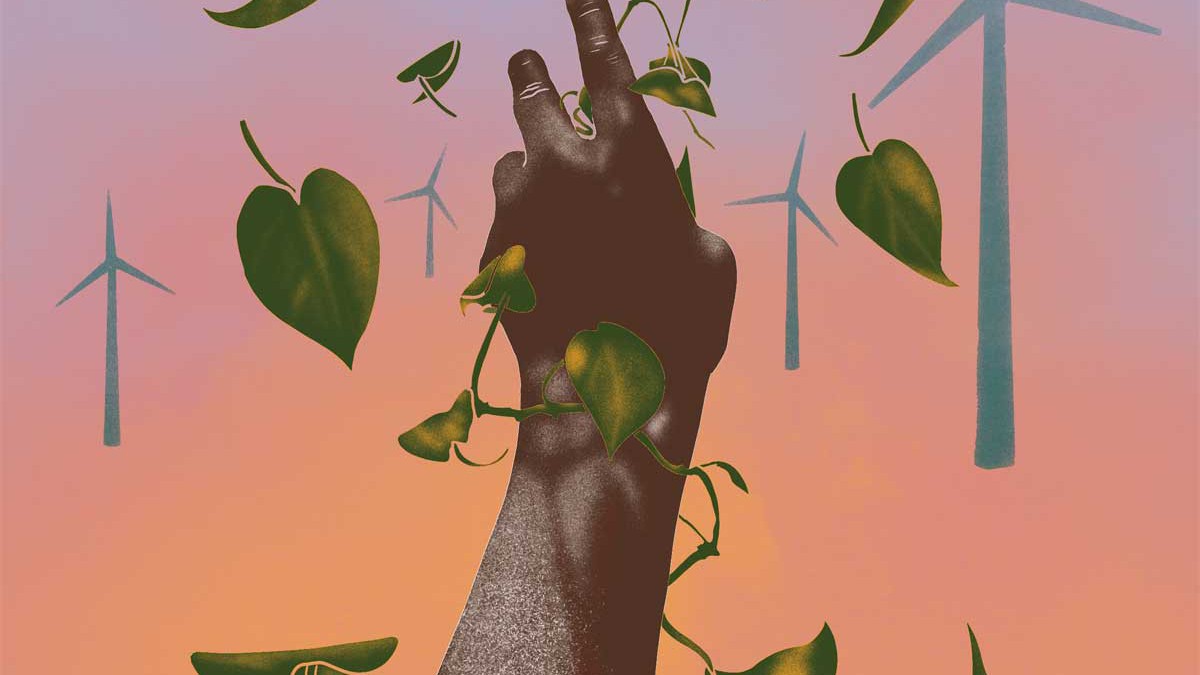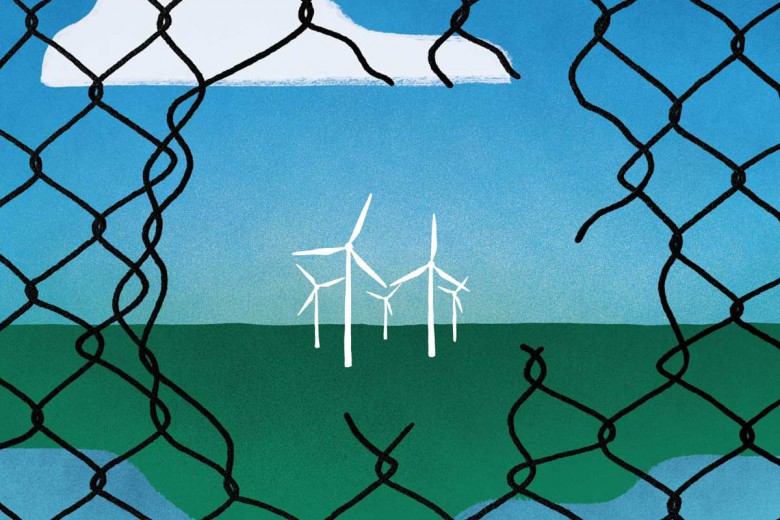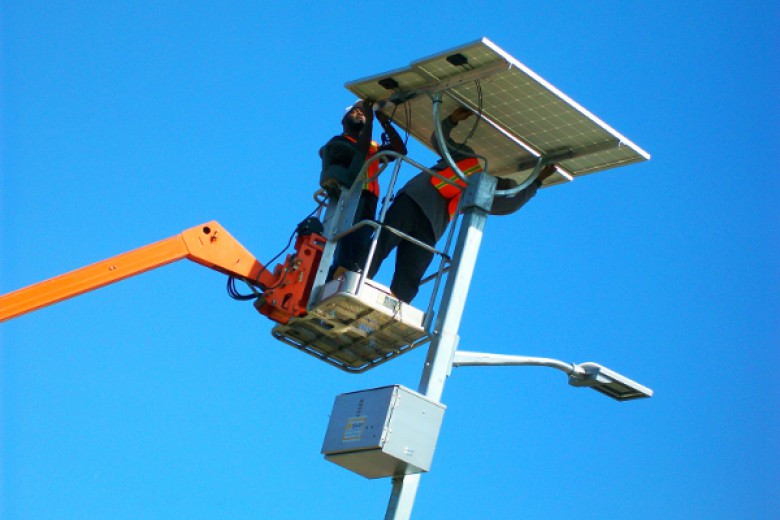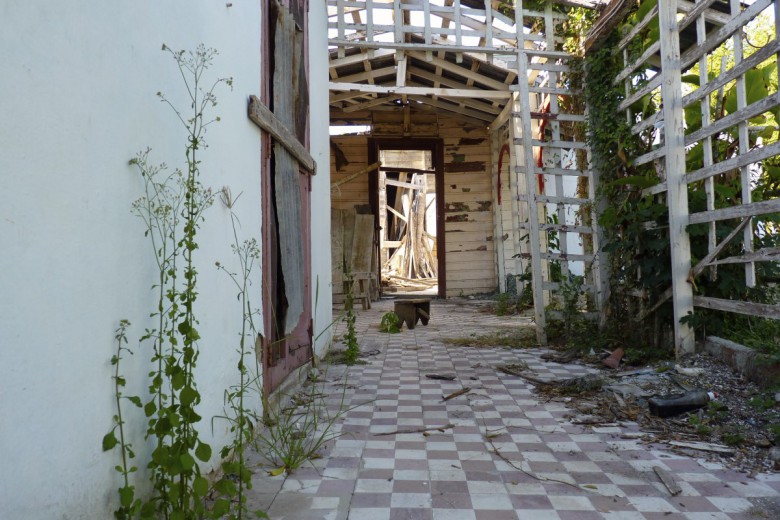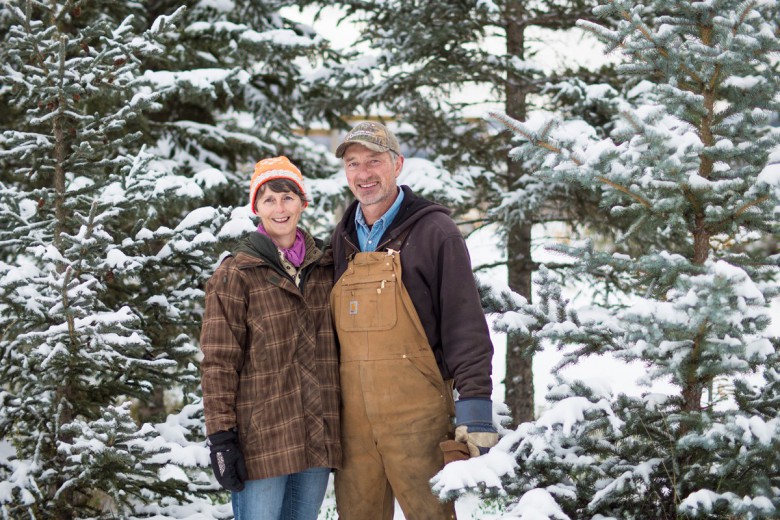Around us, we see fear and uncertainty about the world that is coming into being. This issue of Briarpatch came from a desire to articulate a hopeful vision of the future, and a plan for how to get there by addressing interwoven social and environmental crises.
The concept of “just transition” came up fairly early in our conversations. We struggled with – and ultimately took up – the term, which originates in organized labour and the environmental movement, with the understanding that the term itself refers to a range of political projects, some of which are reformist and others that are more radical. We also recognize that as with terms like “nation-to-nation,” “decolonization,” and “Indigenization,” settler-colonial political parties like the Liberal Party of Canada will co-opt terminology used by social movements to help push ahead business as usual.
Unlike much of the discussion of climate change, in this issue we don’t ignore the role of settler colonialism in the ecological crisis, or the centrality of Indigenous land rights in a just transition.
When the editorial collective first came together, we discussed what it meant to be talking about a just transition in the context of surging white nationalism. In October, we scheduled our first meetings while reading news about the Pittsburgh synagogue massacre; we began editing drafts in February while the pro-pipeline, racist truck convoy was met by Andrew Scheer and a prominent white supremacist in Ottawa; in March we laid out the issue as we mourned the Christchurch mosque massacre. Some of us have been in the streets confronting fascists.
To see fascist movements re-emerge at the same time as we’re fighting a planetary ecological crisis feels like being kicked when we’re down. But as students of capitalism, we shouldn’t be surprised to see that a system of ecological devastation is intertwined with racist violence in 2019. In January, the fascist Jair Bolsonaro became president of Brazil, a country of more than 200 million people with one of the largest economies in the world. One of Bolsonaro’s first acts was an executive order attacking Indigenous land rights, to open up more of the Amazon rainforest for capital.
As the climate crisis worsens and scarcity politics set in, many are turning to anti-immigrant and Islamophobic racism as a form of rationale and protection. Unending fossil fuel development, premised in Canada on Indigenous dispossession, is likewise a death cult, a form of social murder. There is no salvation there, no liberation. Clearly, fighting fascism is part of fighting for a just transition.
Unending fossil fuel development, premised in Canada on Indigenous dispossession, is likewise a death cult, a form of social murder. There is no salvation there, no liberation.
So while we confront these violent forces, we believe in the necessity of thinking through, putting forward, and working on alternatives.
As you’ll see in these pages, we aren’t holding our breath for governments to deliver a just transition. While the Green New Deal dominates headlines and pushes the boundaries of what kinds of responses to climate change are possible, we wanted to open space to think about state responses to climate change critically. We were interested in (but also skeptical about) the degrowth movement, which finds its North American hub in Quebec, and so we spent some time exploring the movement’s potential.
In our case studies we investigated the potency of various just transition projects and strategies, where people are taking matters into their own hands – not always waiting for a benevolent government to deliver, nor for some NGO to take care of it on their behalf. In many cases, these investigations lead back to major economic questions that intertwine with state power. If there is an emphasis on economics in the issue, it’s not because we want to get bogged down in dense debates, but because our social and ecological relations are primarily determined by economic systems. It gets at the heart of the matter.
We’ve included visionary fiction because we need more than journalism, profiles, and critiques. There’s also an excellent roundtable discussion and an important piece on migrant justice and border politics – central for a truly just transition.
When addressing the climate crisis, mainstream sources in Canada seldom, if ever, go beyond debates about carbon taxes. The gap between what the climate science says is necessary to cut carbon emissions and what is considered politically realistic, or even worth talking about, remains very wide. We want to help close the gap between what is happening and what we can do about it. We tried to ask some basic questions.
How does our current economic system lock us into destructive practices? How could we do things differently? How can we get there? What’s stopping us? How are people organizing and fighting back?
It’s not enough to point to what we don’t want and to resist it (although that’s a lot of work on its own). We must also articulate what we do want and start to show the viability and benefits of doing things differently.
The climate justice movement, if we can speak of one movement, has had some significant successes amid the setbacks: anti-pipeline organizing that helped to kill the Energy East pipeline and stall construction on the Trans Mountain expansion pipeline and has shaped public discourse; fracking bans in Quebec, Nova Scotia, and New Brunswick as a result of actions like those taken by water protectors at Elsipogtog; coal phaseout plans across much of Canada; and hopeful signs such as the more than one million students across the world who went on a one-day strike for the climate on March 15.
More and more people – especially young people – understand the seriousness of climate change. They implicitly understand that lines must be drawn and bold steps must be taken. Business as usual can’t continue, and it’s up to us to help change it.
We hope this issue helps bolster your convictions. We hope it connects different struggles to one another. We hope it stirs the radical imagination. And we hope it helps everyone to keep going as we fight for the kind of future we will inhabit.


